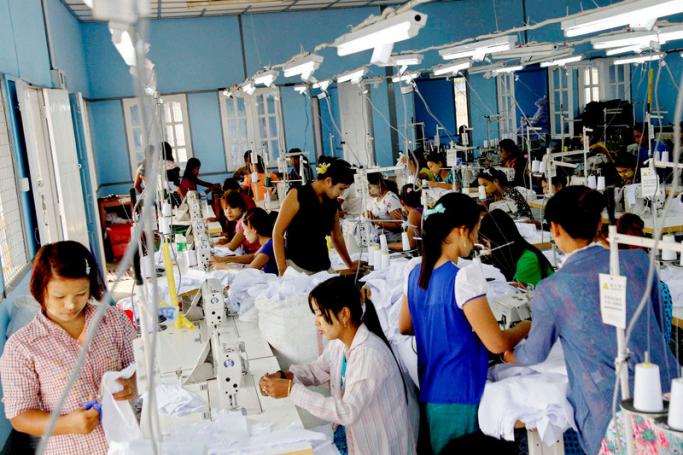Ma Hnin Tha Dar (alias) says the revolution against the military junta has to be successful before women can really have rights on a par with men in the workplace.
The challenges for women leaders in factories and on the shop floor have been tough – even before the February 2021 military coup, Ma Hnin Tha Dar tells Mizzima.
Over the last decade of change under a nominally civilian government, as the country cautiously opened up, Myanmar still lagged behind other countries in South East Asia. Women activists say the work of women leaders is tough because men tend to rule the roost.
When a female leader gained power in the 2015 national elections, there was a flickering of hope that the situation would improve. Aung San Suu Kyi’s victory as leader of the National League for Democracy (NLD) was a watershed moment for the country. But, as Ma Hnin Tha Dar found, there was not enough emphasis put on women’s rights.
Ma Hnin Tha Dar is chairperson of a labour union and she has experience of the rough-and-tumble and foul-mouthed dealing with labour issues at the hands of men.
As she told Mizzima, she was shocked at how men would be disrespectful and threatening as she sought to do her job and represent the workers’ rights.
She recalled the tough lesson she learnt in 2018 when standing for workers’ rights at a garment factory.
“The issue was about an employer and the employees of a garment factory while the employer violated the labour law and did not want to give the workers their rights,” she said.
As a representative of the labour union, she joined a meeting of lawyers, police, township administrators and an official from the Ministry of Labour.
“During the negotiation process, they spoke harshly, disrespectfully, mocking and humiliating me as a woman leader, which was the most remarkable moment in my life,” said Ma Hnin Tha Dar.
Women had seen a glint of light under the Thein Sein regime and then under the NLD.
Changes for the better began to take place when it comes to gender equality, but only up to a point.
“You will see the changes in the gender equality movement in Myanmar during these modern days but not a large percentage. For example, some people still avoid washing men’s clothes and women’s clothes together because they believe it is demeaning to men,” said Ma Hnin Tha Dar.
“It’s really hard to be a female leader. When I can’t stand injustice, I want to go to solve it,” she said.
But, as she notes, her family still thinks men are superior to women.
“There is the custom in Myanmar that women should marry and take care of her family and do housework and there are things that women are not allowed to do. We are familiar and live with all these nonsense traditions and customs which discriminate against women,” Ma Hnin Tha Dar explained.
During the period of the civilian-led government, a reform process of gender equality was initiated. Therefore, a lot of women leaders appeared during that period.
Then the shock of the military coup caused a setback.
Everybody is threatened by the Military Council, Ma Hnin Tha Dar said.
The success of the revolution against the military to achieve a federal democracy is crucial for women’s rights, labour rights and people’s rights in general.
Hence, labour unions are participating in the revolution.
“After achieving federalism, I wish we can break through the norms between women and men,” said Ma Hnin Tha Dar, speaking in her role as labour union leader.












